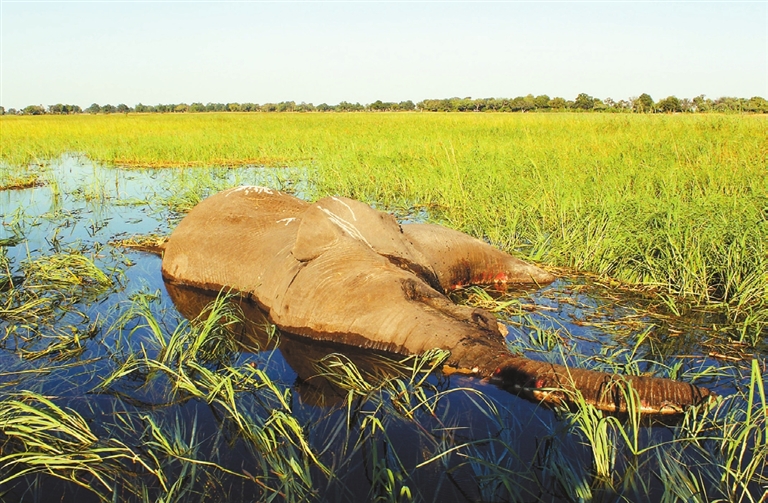
MORE than 350 elephants have mysteriously died in northern Botswana over the past two months, which scientists describe as a “conservation disaster.” Botswanans view the loss as a blow to the national tourism economy and in many places, a loss to the community. “It’s the biggest thing that’s happened to elephants in a very, very long time,” Dr. Niall McCann, co-founder of U.K.-based charity National Park Rescue, told ABC News. “Outside of droughts in the 1970s I don’t know of a die-off that has been this significant.” The government of Botswana is investigating. “To date we have verified 275 carcasses of the 356 that have been reported so far in the area north of the Okavango Delta,” said Dr. Mmadi Reuben, the head veterinarian of the Botswana Department of Wildlife and National Parks. The killer could be a natural pathogen, or poison, Rubean said, but, “Poaching has been ruled out as the carcasses were found intact.” “Anthrax has also been ruled out by the lab in the country,” he said. “We do step-by-step elimination of potential causes of mortality,” he explained. “So far, we have not been able to rule out poisoning or some infectious disease. The diagnostic plan includes testing for known potential causes as well as novel pathogens.” “Three laboratories in Zimbabwe, South Africa and Canada have been identified to process the samples taken from the dead elephants,” the Ministry of Environment, Natural Resources, Conservation and Tourism said in a written statement Thursday. “Samples from the carcasses, environmental samples from soil and water as well as samples from the live animals have been sent to the regional laboratories and abroad,” explained Reuben. “We are awaiting results and continuing the dialogue.” But he said, there may be clues. “Some of the elephants have profound weakness of their back legs, suggesting the potential for toxins affecting [central nervous system] function of the animal.” Most carcasses have been found clustered around water sources close to the Okavango Delta, in normal times, a major tourist safari destination. The conditions of the bodies suggest elephants have been dying for some time as many remains are far more deteriorated than others, a local conservationist told ABC News. Government teams are on the ground, dealing with the carcasses and Reuben noted, they are “removing the tusks of all dead animals, to prevent the illegal harvesting of the ivory.” The investigation team, equipped with complete personal protective equipment, he said, continues to treat the disease with necessary precautions as it’s not clear if it could be transmitted to humans. The government has also issued a warning to the local community to stay away from the carcasses. There could be a chance that the elephants had died of an unknown disease,” McCann said. “So, the possibility of the pathogen jump[ing] into humans is also impossible to rule out at this point. It is a conservation disaster, but it also has the potential to be a public health crisis.” Botswana is home to the world’s largest elephant population, with more than a third of Africa’s elephants, according to the latest Great Elephant Census, which Rubean’s colleagues at the Department for Wildlife and Natural Parks helped produce. It is also one of the most stable countries in Africa with one of the best wildlife records. Tourism accounts for a fifth of Botswana’s GDP. For all those reasons, “We are really putting all the efforts to really get to the bottom of this,” Rubean said. “It is a very worrisome situation, the single most perplexing scenario of elephant mortality I have experienced in my career.”(SD-Agencies) | 
